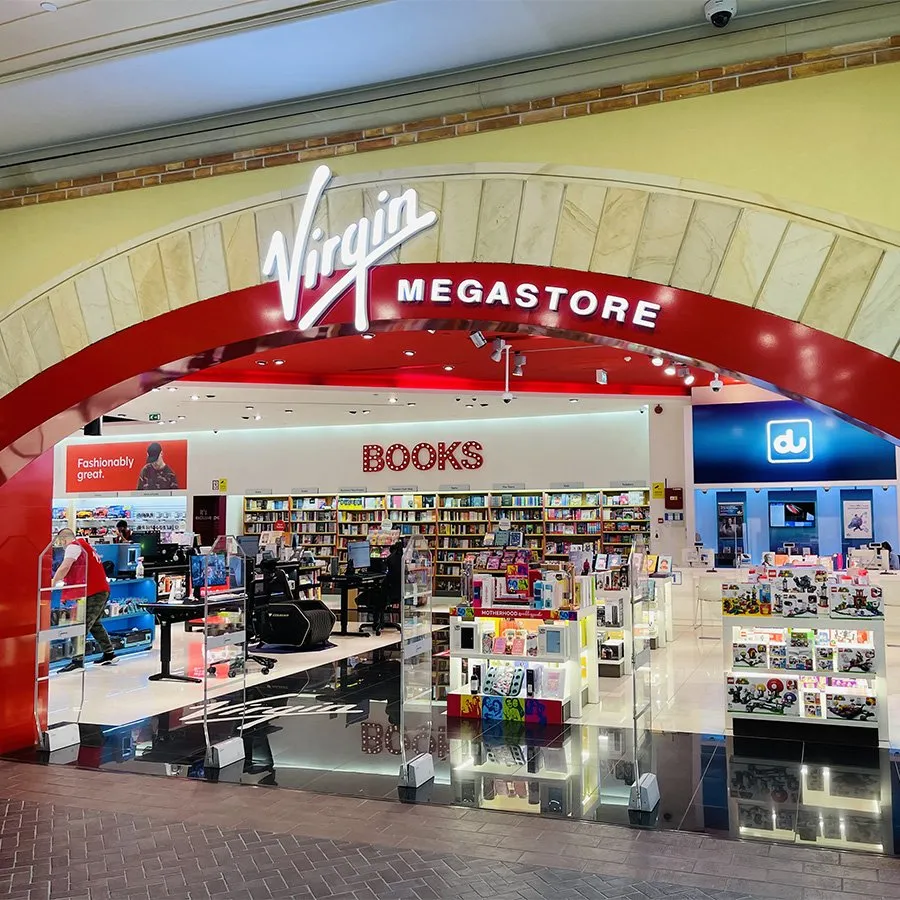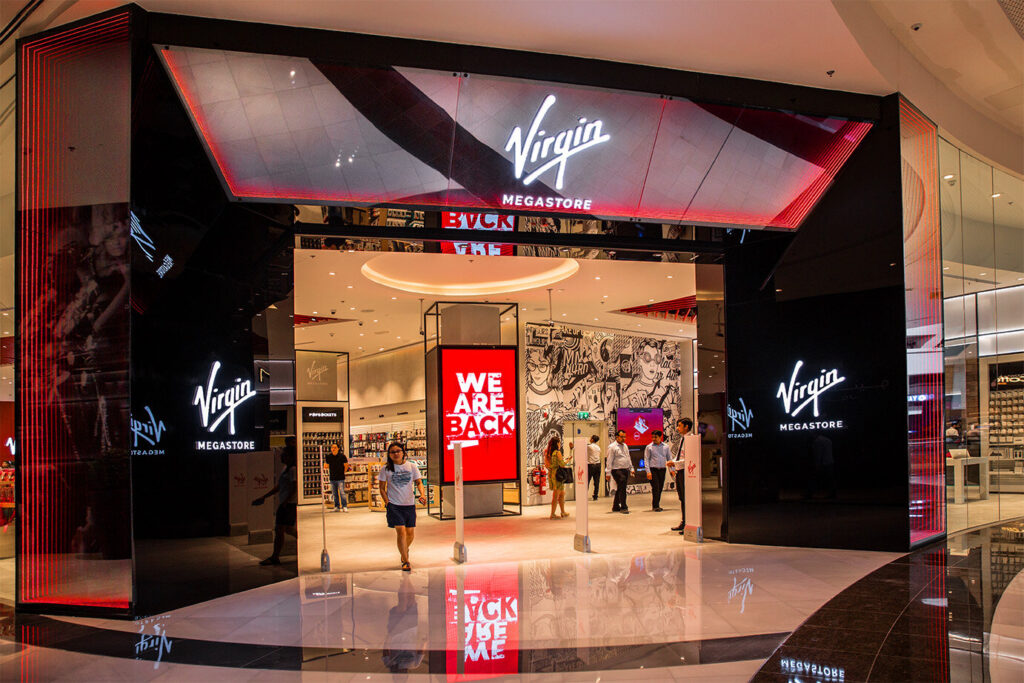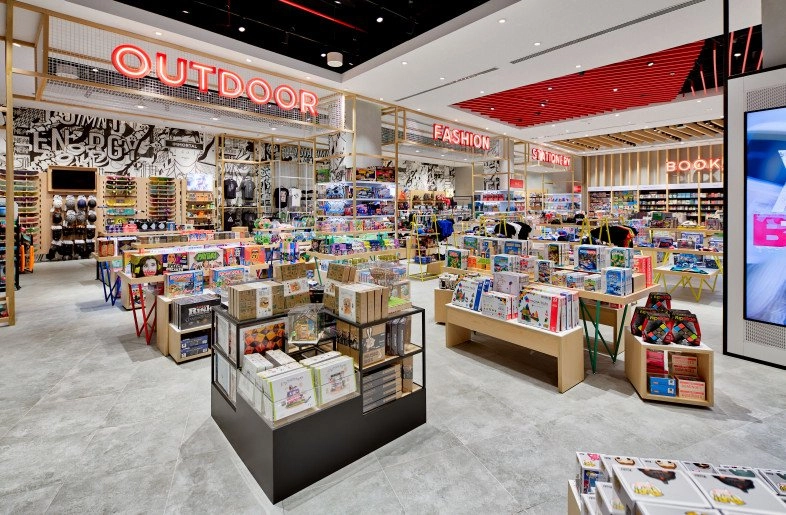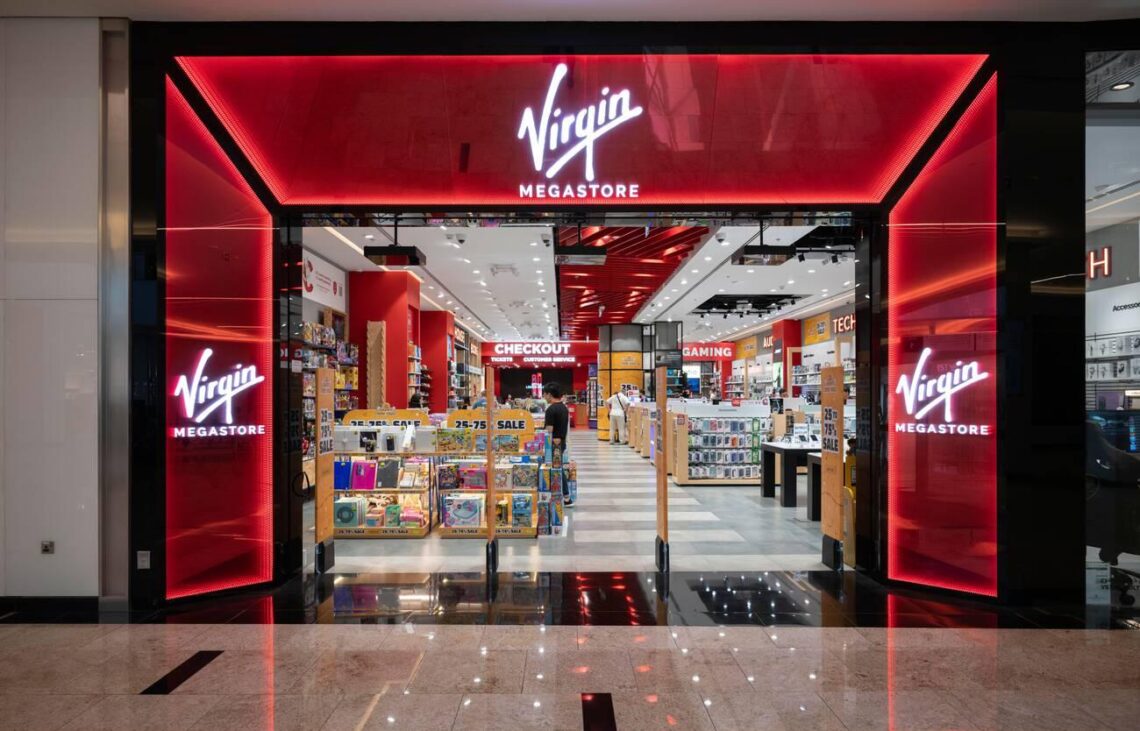Introduction
In the dynamic realm of retail entertainment, few brands have left as profound an impression as Virgin Megastore. Established by the visionary entrepreneur Richard Branson, Virgin Megastore quickly rose to prominence as a global cultural phenomenon, offering an all-encompassing shopping experience for music, movies, and a variety of other entertainment products. This article delves into the rich history, expansive growth, and eventual evolution of Virgin Megastore, honoring the enduring legacy it has carved out within the retail industry.

The Birth of Virgin Megastore
Virgin Megastore was born from Richard Branson’s Virgin Group, which began as a mail-order record business in 1970. The company’s first physical store opened in 1971 on London’s Oxford Street. In its early days, Virgin Records and Tapes catered to the counterculture movement, offering an eclectic mix of music that appealed to young and adventurous audiences.
The Expansion Era
The 1980s were a transformative decade for Virgin Megastore, characterized by significant growth and development. During this time, there was a notable surge in music consumption, leading to an increased demand for a diverse range of music genres. Virgin Megastore took full advantage of this trend by establishing expansive retail spaces in prominent locations throughout the UK, Europe, and eventually making its way to the United States. These stores gained a reputation for offering an extensive selection of music, creating a lively atmosphere, and providing customers with unique and innovative shopping experiences.

A Cultural Hub
Virgin Megastore was far more than a mere retail outlet; it served as a dynamic cultural hub for music and entertainment enthusiasts. The stores frequently hosted an array of live performances, autograph signings, and exciting launch events, featuring well-known artists and celebrities from various genres. This unique approach solidified Virgin Megastore’s standing as a destination of discovery and thrill, allowing customers to fully immerse themselves in the cutting-edge entertainment trends of the day.
The Global Footprint
By the mid-1990s, Virgin Megastore had established a significant international presence, with locations in Europe, North America, Asia, and the Middle East. Each store was tailored to its local market, offering products that resonated with regional tastes while maintaining the brand’s unique identity. This global reach made Virgin Megastore a household name and a go-to destination for entertainment enthusiasts worldwide.

The Digital Revolution
The late 1990s and early 2000s brought significant changes to the music and entertainment industries. The rise of digital music and online shopping began to challenge traditional brick-and-mortar retailers. Virgin Megastore, like many others, faced the daunting task of adapting to a rapidly evolving landscape. Despite these challenges, the brand continued to innovate, introducing online sales platforms and diversifying its product offerings.
The Decline and Transformation
The early 2000s marked a turning point for Virgin Megastore. The growing popularity of digital downloads and streaming services led to declining foot traffic and sales in physical stores. In response, the Virgin Group began to sell off or close many of its stores worldwide. However, in some regions, the Virgin Megastore brand found new life. In the Middle East, for instance, the franchise model allowed the brand to continue thriving, adapting to local markets and customer preferences.

Legacy and Impact
Although Virgin Megastore has experienced a decline in numerous regions globally, its legacy continues to persist. The brand was instrumental in transforming the retail entertainment landscape, establishing benchmarks for customer interaction and pioneering retail innovation. The impact of Virgin Megastore is still evident in contemporary retail models that emphasize experiential shopping and foster community involvement.
Conclusion
Virgin Megastore remains a symbol of an era when music and entertainment were tangible experiences. Its impact on the retail industry and popular culture is undeniable, and its story serves as a testament to the importance of adaptation and innovation in the face of change. As we look back on the rise and legacy of Virgin Megastore, we celebrate a brand that, for many, defined the joy of discovering new music and entertainment.





Comments by varis